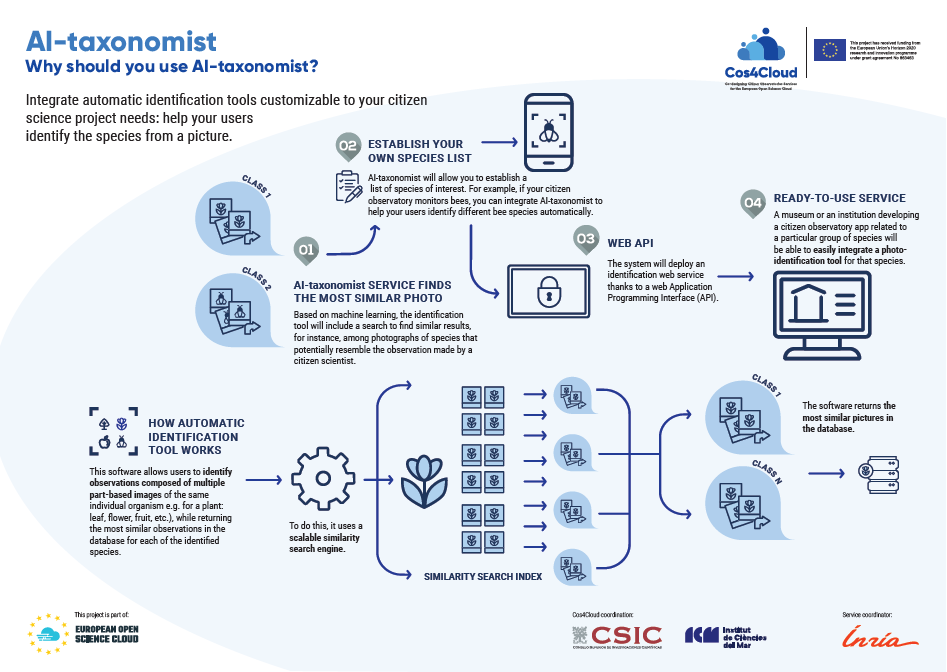Integrate automatic identification tools customizable to your citizen science project needs: help your users identify the species from a picture.
Service description:
This service proposes a toolkit that allows citizen science platforms (or other research projects) to develop automatic identification tools adapted to their needs, e.g. for particular groups of species. The identification tool, based on machine learning, will include a search to find similar results. For instance, among photographs of species that potentially resemble the observation made by the citizen scientist.
Example: A museum developing an app related to a particular group of species will be able to integrate a photo-identification tool for that species without much effort.
Development & functioning :
The toolkit allows users to define a list of species of interest and deploy a queryable contextualized identification web service through a web API and through a web GUI. Therefore, we have extended the deep-learning-based similarity search engine already in use in the Pl@ntNet platform. This software allows users to identify observations composed of multiple part-based images of the same individual organism (e.g. for plants: leaf, flower, fruit, etc.), while returning the most similar observations in the database for each of the identified species, thanks to a scalable similarity-search engine that relies on high-dimensional data hashing and deep representations.
Providing users with accurate visual feedback is crucial so they can control and (un)validate the proposed species.
Innovation for citizen observatories:
- This technology facilitates the integration of AI-based species identification in citizen observatories.
- It will allow users to automatically identify species from a picture, based on artificial intelligence, and will return the most similar pictures in the database to control the proposed identification.
Questions & answers
- Who is this service meant for? Do I need a technical background?
Developers or data scientists with a good background in data engineering and AI technologies.
- Can I integrate the AI-taxonomist web service into existing apps?
Yes you can, under the GBIF Data user agreement and regarding the illustration images licensing, AI-taxonomist backend and frontend are under the MIT open-source licence.
- Does AI-taxonomist only work with plants?
No, it doesn’t. AI-taxonomist works with any set of species having occurrences in GBIF.
- Suppose I am a developer working on a citizen science project to monitor different bee species. Can I integrate this service to help my users to identify the species?
Yes, you can. AI-taxonomist works with both animals and plants, depending on your needs.
- Does AI-taxonomist work with any official biodiversity databases to facilitate the similarity-search engine? Which ones?
By default, AI-taxonomist uses GBIF-DL to download images from GBIF. But you can make it work with any other image database.
Keywords:
Deep learning, artificial intelligence, AI, species identification, DEEP-Hybrid-DataCloud.



















